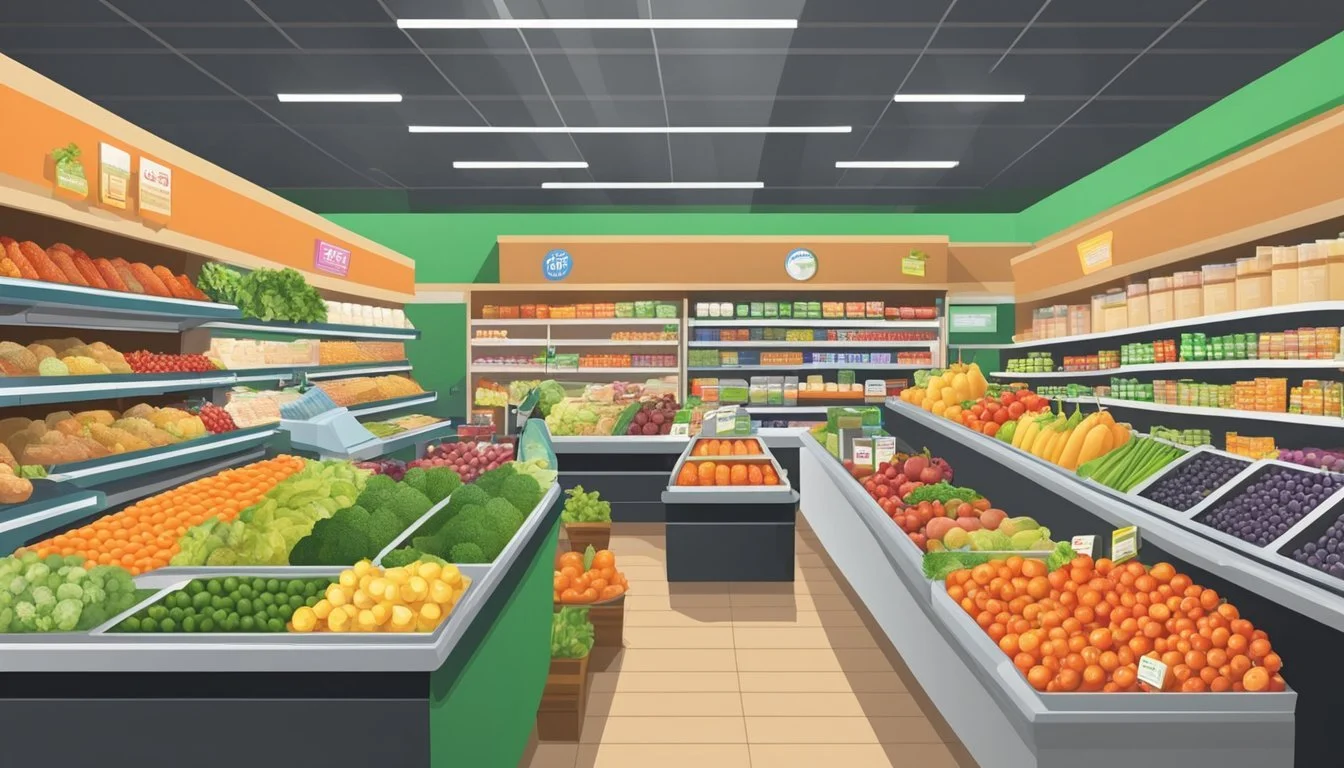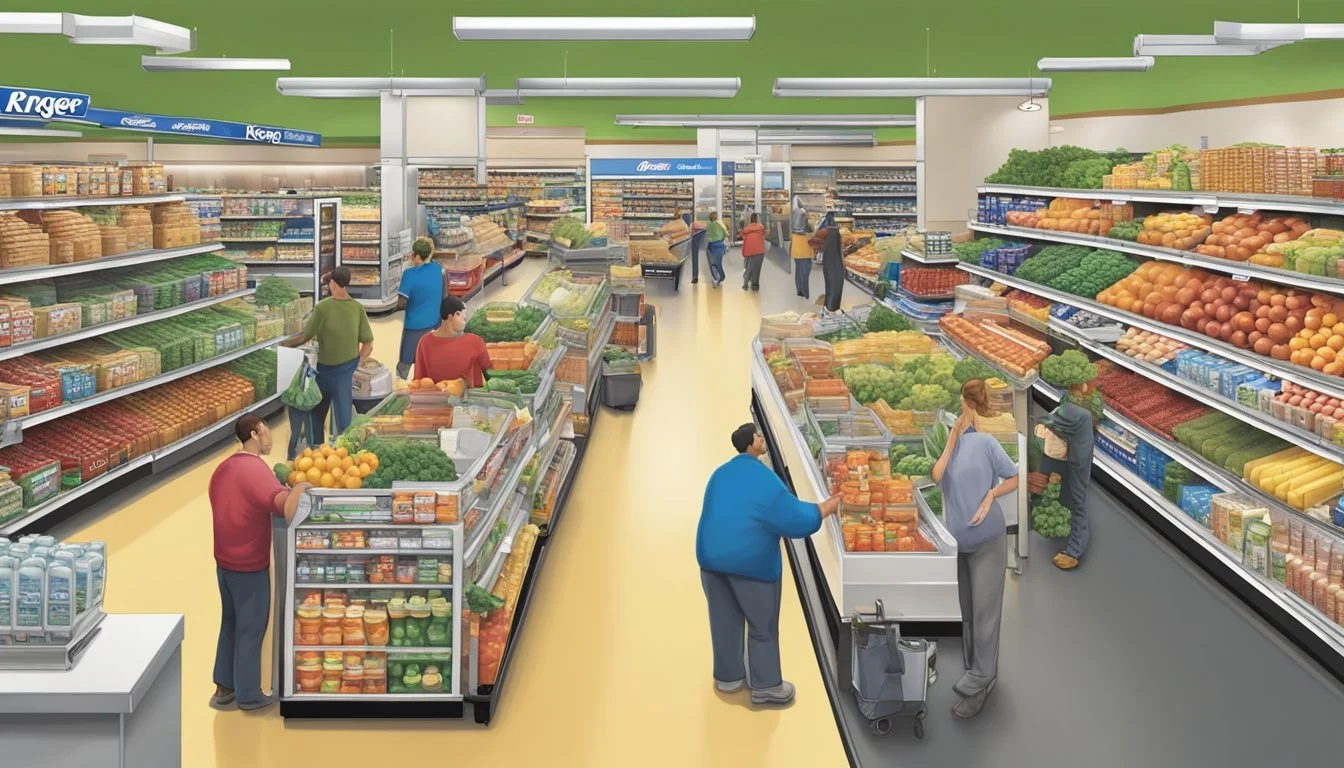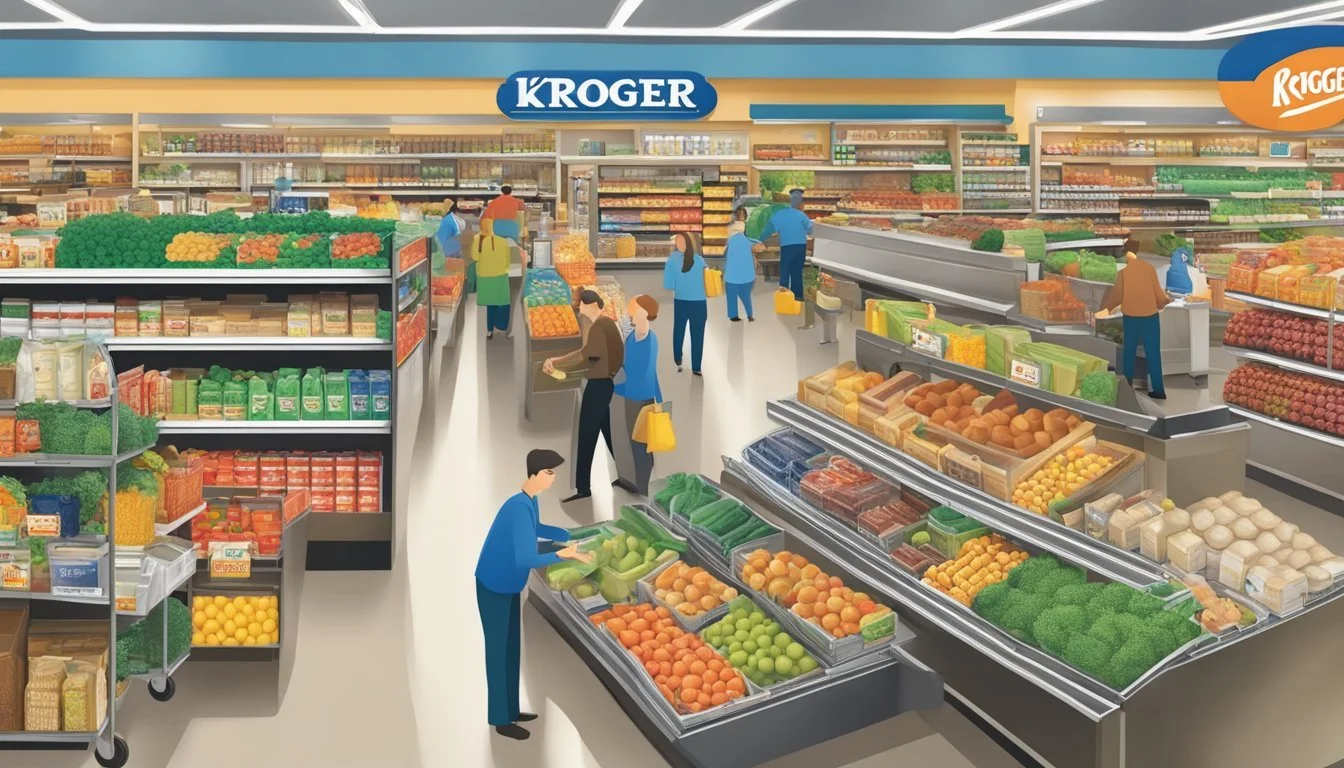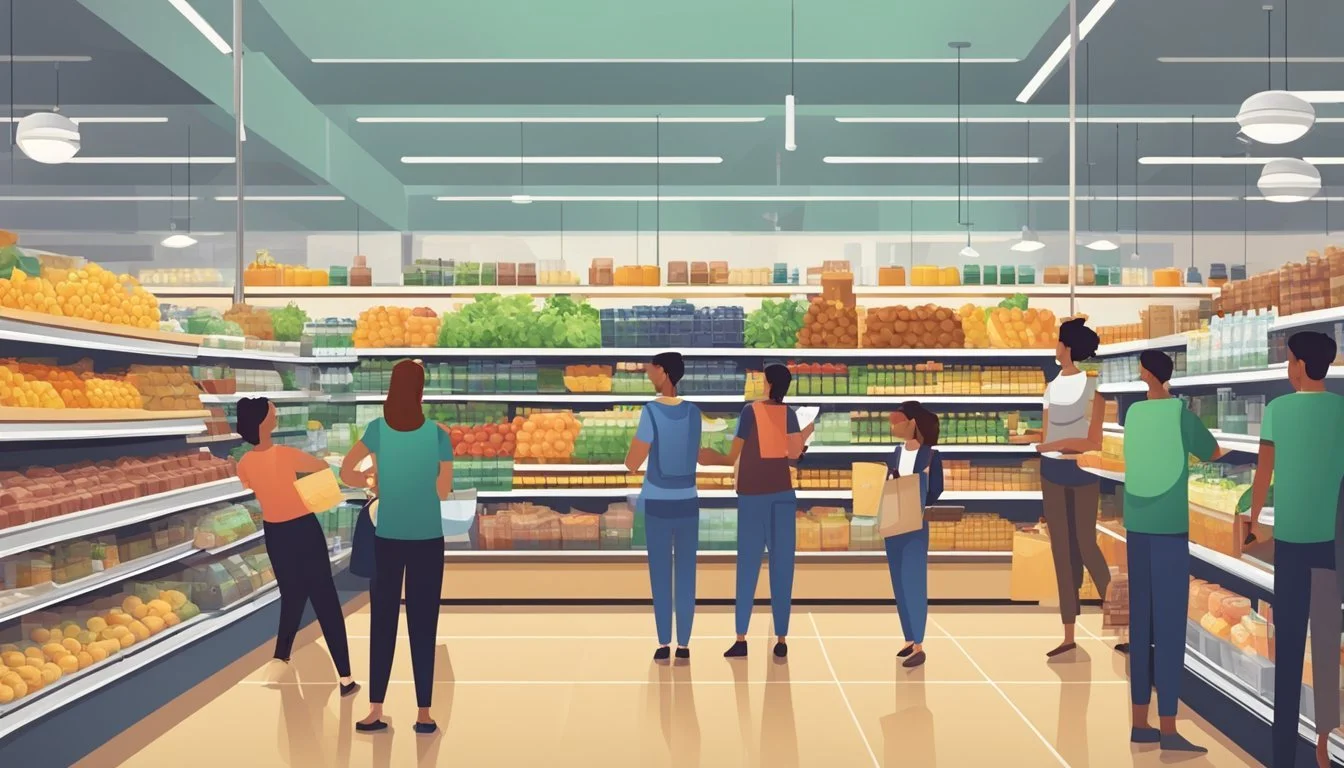Kroger vs WinCo Foods
A Comprehensive Price and Quality Comparison
Grocery shopping can be a significant expense for many households. With rising food prices, consumers are increasingly looking for ways to stretch their budgets without compromising on quality. Kroger and WinCo Foods are two popular supermarket chains that offer different shopping experiences and pricing strategies.
WinCo Foods generally offers lower prices compared to Kroger, with potential savings of 12 to 30 percent below average supermarket prices. This makes WinCo an attractive option for budget-conscious shoppers. The no-frills warehouse-style stores and employee-owned business model allow WinCo to keep costs down and pass savings on to customers.
Kroger, on the other hand, provides a more traditional grocery store experience with a wider selection of national brands and in-house products. While prices may be higher than WinCo, Kroger offers frequent sales, digital coupons, and a loyalty program that can help offset costs for savvy shoppers. The choice between these two grocery chains ultimately depends on individual preferences for price, selection, and shopping atmosphere.
Company Overview
Kroger and WinCo Foods are two prominent grocery chains with distinct business models and market positions. Each offers unique shopping experiences and value propositions to customers across the United States.
Kroger at a Glance
Kroger is one of the largest supermarket chains in the United States. Founded in 1883, it operates over 2,700 stores across 35 states. The company's portfolio includes various store formats and banners such as Fred Meyer, Ralphs, and Harris Teeter.
Kroger is known for its:
Wide selection of national brands and private label products
Fuel centers at many locations
Digital coupons and loyalty program
Online ordering and delivery services
The company has a strong focus on technology and innovation, investing in automated warehouses and digital platforms to enhance customer experience.
WinCo Foods Profile
WinCo Foods is a privately held, employee-owned supermarket chain founded in 1967. It operates over 130 stores across 10 western states. The company is known for its no-frills, warehouse-style stores and low prices.
Key features of WinCo Foods include:
Bulk foods section with over 700 items
24/7 operation in most locations
Employee ownership model
Focus on cost-cutting to maintain low prices
WinCo keeps costs down by not accepting credit cards, having customers bag their own groceries, and minimizing advertising. The company's lean operations allow it to offer competitive prices on a wide range of products.
Price Comparison
Kroger and WinCo Foods offer distinct pricing strategies that impact shoppers' grocery bills. Both stores aim to provide value, but their approaches differ in key ways.
Comparing Everyday Prices
WinCo Foods generally offers lower everyday prices compared to Kroger. WinCo's no-frills warehouse model allows for significant cost savings. The store focuses on keeping operational expenses low and passes these savings to customers.
Kroger's prices tend to be slightly higher on average, but the chain compensates with a wider product selection. WinCo typically beats Kroger by 15-20% on staple items like milk, bread, and produce.
A basket of common grocery items at WinCo often costs $80-90, while the same items at Kroger may total $95-105.
Sales and Discounts
Kroger excels in promotional pricing and temporary discounts. The chain frequently runs sales, offers digital coupons, and uses loss leaders to attract customers.
Kroger's loyalty program provides personalized deals and fuel points. Weekly ad circulars feature numerous sale items across departments.
WinCo rarely offers traditional sales or coupons. Instead, the store maintains consistently low prices year-round. This approach appeals to shoppers who prefer straightforward pricing without tracking promotions.
Bulk Purchasing
WinCo Foods shines in bulk buying options. The store features an extensive bulk foods section with competitive prices on nuts, grains, spices, and more.
Shoppers can purchase exact quantities needed, reducing waste and saving money. Bulk items at WinCo are often 30-50% cheaper than packaged equivalents.
Kroger offers some bulk options, primarily through its Simple Truth brand. However, the selection is more limited compared to WinCo. Kroger's bulk prices are generally higher, though still cheaper than packaged versions.
For large families or those who prefer to stock up, WinCo's bulk options provide significant savings over time.
Product Quality and Variety
Kroger and WinCo Foods offer distinct product selections and quality levels across various grocery categories. Both chains strive to meet customer needs, but their approaches differ in key areas.
Produce Selection
Kroger typically provides a wider range of produce options compared to WinCo Foods. Kroger stores often feature extensive fruit and vegetable sections with both conventional and organic choices. Their produce departments frequently include specialty items and seasonal offerings.
WinCo Foods, while more limited in variety, focuses on providing fresh staples at competitive prices. Their produce sections emphasize commonly purchased items like apples, bananas, lettuce, and potatoes. WinCo's bulk bins allow customers to purchase exact quantities of certain produce items.
Kroger generally maintains higher standards for produce appearance and freshness. However, WinCo's rapid inventory turnover can result in surprisingly fresh offerings despite a more basic presentation.
Meat and Dairy Quality
Kroger offers a diverse selection of meats, including premium cuts and specialty items. Their meat departments often feature in-house butchers and custom-cut options. Kroger's dairy selection is expansive, with national brands alongside private-label alternatives.
WinCo Foods provides a more streamlined meat selection, focusing on popular cuts and value packs. Their meat quality is generally good, though the variety is less extensive than Kroger's. WinCo's dairy options are more limited but include essential items at competitive prices.
Both chains maintain food safety standards, but Kroger's larger size allows for more frequent quality checks and a broader supplier network.
Organic and Specialty Items
Kroger has made significant strides in expanding its organic and specialty product offerings. Their stores typically feature dedicated organic sections and carry a wide range of specialty diet items, including gluten-free, vegan, and international foods.
Kroger's Simple Truth organic brand
Extensive selection of specialty flours and grains
Wide variety of plant-based meat alternatives
WinCo Foods' organic selection is more limited but growing. They offer some organic produce and pantry staples, often at lower prices than competitors. Specialty items are less prevalent at WinCo, though some stores have expanded their offerings to meet increasing demand.
WinCo's bulk food section stands out, allowing customers to purchase organic and specialty items in custom quantities, often at significant savings.
Shopping Experience
The shopping experience at Kroger and WinCo Foods differs significantly in store layout, customer service, and check-out efficiency. These factors play a crucial role in shaping customer satisfaction and loyalty.
Store Layout and Navigation
Kroger stores typically feature a more traditional supermarket layout. Aisles are organized by product categories, with clear signage guiding shoppers. The stores often include specialty departments like bakery, deli, and pharmacy.
WinCo Foods adopts a warehouse-style layout. The stores are larger, with wider aisles and bulk bins for many products. This layout allows for greater inventory and contributes to lower prices. However, first-time shoppers may find navigation more challenging.
Both chains prioritize convenience, placing popular items like produce and dairy near the entrance. Kroger's layout tends to be more intuitive for quick trips, while WinCo's design caters to larger, stock-up shopping excursions.
Customer Service
Kroger emphasizes customer service as a key differentiator. Stores are generally well-staffed, with employees available to assist shoppers. Many locations offer specialized services like floral arrangements and custom cakes.
WinCo Foods operates on a leaner staffing model to keep costs down. Fewer employees are available on the floor, but those present are typically knowledgeable about product locations. The focus is on efficiency rather than personalized service.
Both chains train their staff to be helpful and courteous. Kroger's approach is more hands-on, while WinCo relies on a self-service model that appeals to cost-conscious shoppers who prefer independence.
Check-Out Efficiency
Kroger offers various check-out options, including traditional lanes, self-checkout kiosks, and in some locations, scan-and-go technology. This variety helps manage wait times during peak hours.
WinCo Foods primarily uses a traditional check-out system with cashiers. The stores often have numerous lanes open to handle large cart loads efficiently. Self-checkout options are limited or non-existent in most WinCo locations.
Kroger's diverse check-out options cater to different shopper preferences and can reduce wait times. WinCo's approach, while more limited, is designed to move high-volume purchases through quickly, aligning with their bulk-shopping customer base.
Brand and Product Range
Kroger and WinCo Foods offer distinct product selections that cater to different consumer preferences. Their approaches to private labels, global offerings, and stock management shape the shopping experience for customers.
Private Label Brands
Kroger boasts an extensive lineup of private label products. The company's "Simple Truth" organic brand and "Private Selection" premium line provide affordable alternatives to national brands. WinCo Foods also offers store-brand items, but with a more limited range. Their "WinCo Foods" labeled products focus on pantry staples and everyday essentials.
Kroger's private labels span various categories, including fresh produce, dairy, meats, and prepared foods. WinCo's store brands primarily cover basic grocery items and household goods.
Global Product Offerings
Kroger stores typically feature a wider array of international products. Their shelves stock items from various cuisines, catering to diverse tastes and dietary preferences. Many Kroger locations have dedicated international aisles with Asian, Hispanic, and European specialties.
WinCo Foods maintains a more streamlined approach to global offerings. While they carry some international products, the selection is often less extensive than Kroger's. WinCo focuses on popular ethnic staples rather than niche or specialty items.
Freshness and Stock Rotation
Both chains prioritize freshness, but their approaches differ. Kroger emphasizes its fresh food departments, including produce, bakery, and deli sections. The company invests in technologies and practices to maintain product quality and reduce waste.
WinCo Foods operates on a high-volume, fast-turnover model. This approach naturally promotes freshness as products move quickly off shelves. Their bulk foods section allows customers to purchase exactly what they need, potentially reducing food waste at home.
Kroger's larger stores often carry a broader range of fresh items and prepared foods. WinCo's focus on efficiency may result in a more limited but frequently restocked fresh food selection.
Membership and Loyalty Programs
Kroger and WinCo Foods take different approaches to customer loyalty. Kroger offers comprehensive rewards programs, while WinCo focuses on everyday low prices without a formal loyalty scheme.
Rewards and Savings Programs
Kroger provides a free loyalty program called Kroger Plus. Members can save an average of $576 per year through exclusive discounts and personalized deals. The company also offers Kroger Boost, a paid subscription service with two tiers.
For $59 annually, customers get free next-day delivery on orders over $35. The $99 tier provides free delivery in under two hours. Both levels include fuel points for gas savings.
WinCo Foods does not have a traditional loyalty program. Instead, the company emphasizes consistently low prices for all shoppers. This approach aligns with their no-frills, cost-cutting business model.
Affiliated Credit Cards
Kroger partners with Mastercard to offer the Kroger Rewards World Elite Mastercard. Cardholders earn:
5% cash back on Kroger's own brand products
2% back on all other Kroger purchases
1% back everywhere else Mastercard is accepted
Rewards are issued as Kroger fuel points and can be redeemed for groceries or gas.
WinCo Foods does not have a branded credit card. The company accepts debit cards and cash, but not credit cards, to keep prices low by avoiding processing fees.
Convenience Services
Kroger and WinCo Foods offer different convenience services to meet customer needs. Both stores provide options for easier shopping, though their specific offerings vary.
Online Ordering and Pickup
Kroger excels in online ordering and pickup services. Customers can use the Kroger app or website to select items and schedule a pickup time. Store associates gather the groceries and load them into the customer's car at designated pickup areas.
WinCo Foods has more limited online ordering options. Some WinCo locations offer curbside pickup through third-party services like Instacart, but it's not available at all stores. The selection for online ordering may be more restricted compared to in-store shopping.
Grocery Delivery Options
Kroger partners with Instacart for home delivery in many areas. Customers can order groceries through Kroger's website or app for same-day delivery. Fees apply, but Kroger occasionally offers promotions for free or discounted delivery.
WinCo Foods does not provide its own delivery service. However, some WinCo locations offer delivery through third-party apps like Instacart or DoorDash. Availability and fees vary by location and service provider.
Kroger's more extensive delivery options give it an edge in convenience for customers who prefer home delivery. WinCo's limited delivery services may be a drawback for shoppers seeking this convenience.
Locations and Accessibility
Kroger and WinCo Foods differ significantly in their store locations and accessibility. These factors can greatly impact shoppers' convenience and overall shopping experience.
Store Proximity and Hours
Kroger operates over 2,700 stores across 35 states, primarily in the Midwest and Southern United States. Many Kroger locations are open 24 hours a day, providing flexibility for customers with varying schedules.
WinCo Foods has a more limited presence with around 130 stores in 10 Western states. WinCo stores typically operate from 6 AM to midnight, offering extended hours but not 24/7 service.
In urban areas, Kroger stores are often more numerous and closer to residential neighborhoods. WinCo tends to have fewer, larger format stores located in suburban areas.
Parking and Accessibility
Both chains generally provide ample parking for customers. Kroger stores are often integrated into shopping centers, offering convenient access to other retailers. Many locations feature fuel centers as well.
WinCo Foods stores are typically standalone buildings with spacious parking lots. Their stores are designed for high-volume shopping, with wide aisles and multiple checkout lanes to accommodate large carts.
Kroger has invested in online ordering and curbside pickup services at many locations. WinCo has been slower to adopt these technologies, focusing primarily on in-store shopping experiences.
For shoppers with mobility concerns, both chains offer motorized carts and accessible parking spaces. Kroger's smaller store formats may be easier to navigate for some customers.
Corporate Responsibility
Kroger and WinCo Foods both demonstrate commitment to corporate responsibility through various initiatives. Their efforts focus on sustainability and community involvement, aiming to create positive impacts beyond their stores.
Sustainability Efforts
Kroger has set ambitious sustainability goals. The company aims to achieve zero waste to landfill by 2025. Kroger also plans to reduce greenhouse gas emissions by 30% by 2030.
WinCo Foods takes a different approach. The company focuses on reducing food waste through efficient inventory management. They also prioritize energy-efficient store designs.
Both retailers have implemented recycling programs. Kroger offers plastic bag recycling at many locations. WinCo encourages customers to bring reusable bags.
Kroger has made strides in sustainable packaging. They've committed to making 100% of their packaging recyclable, reusable, or compostable by 2030.
Community Involvement
Kroger's community efforts are substantial. The company operates the Zero Hunger | Zero Waste Foundation. This initiative aims to end hunger in communities and eliminate food waste.
WinCo Foods takes a localized approach. They support food banks and charities in areas where their stores operate. The employee-owned structure of WinCo also contributes to local economies.
Both companies offer educational programs. Kroger provides nutrition education in schools. WinCo supports local youth organizations and sports teams.
Kroger has a formal diversity and inclusion program. They work to create a diverse workforce and support minority-owned suppliers. WinCo's community involvement often focuses on supporting local events and causes.
Customer Testimonials and Ratings
Consumer Reports surveyed over 75,000 members about their experiences with various grocery stores. This data provides valuable insights into customer satisfaction for both Kroger and WinCo Foods.
Kroger received mixed reviews from customers. Some praised the store's loyalty program and digital coupons. Others expressed concerns about product availability and customer service quality.
WinCo Foods garnered positive feedback for its low prices and bulk food options. Customers appreciated the employee-owned company's no-frills approach and focus on value.
A comparison of ratings reveals:
Category Kroger WinCo Foods Price ★★★☆☆ ★★★★★ Selection ★★★★☆ ★★★☆☆ Customer Service ★★★☆☆ ★★★☆☆ Cleanliness ★★★★☆ ★★★☆☆
WinCo Foods consistently ranked higher in price-related categories. Kroger scored better in areas such as product selection and store atmosphere.
Online reviews echo these sentiments. WinCo shoppers frequently mention savings and value. Kroger customers often highlight the store's convenience and diverse product offerings.
Both chains have loyal followings. The preferred store often depends on individual priorities such as budget, product variety, or shopping experience.
Conclusion and Final Thoughts
Kroger and WinCo Foods each offer distinct advantages for grocery shoppers. Kroger's extensive selection and loyalty program appeal to many customers seeking variety and rewards.
WinCo Foods stands out for its consistently low prices, especially on staple items. This makes it an attractive option for budget-conscious families looking to save money on groceries.
Both stores maintain a strong presence in their respective markets. Kroger's nationwide footprint provides convenience for many shoppers. WinCo's regional focus allows for tailored offerings in specific areas.
Ultimately, the choice between Kroger and WinCo Foods depends on individual priorities. Those valuing rock-bottom prices may prefer WinCo. Shoppers seeking a wider product range might lean towards Kroger.
For maximum savings, some families opt to split their shopping between both stores. This strategy allows them to capitalize on the best deals and selection from each retailer.
Both Kroger and WinCo Foods have carved out successful niches in the competitive grocery landscape. Their continued growth demonstrates the enduring appeal of their respective business models.








